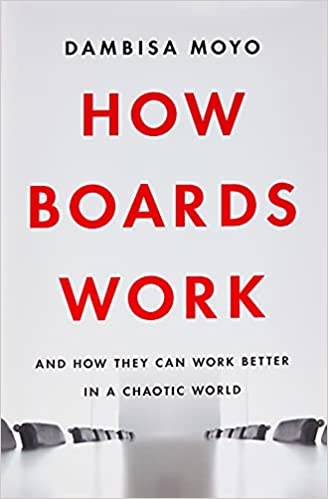I joined my first corporate board at the age of ten.
It was a fairly small organization. The entire workforce comprised of just four classmates and me, and we all got seats on the board.
However, we had a clear goal, plus all the investment we needed to start. And we had fire in our bellies.
We were new to the business world, but we were determined to make it big.
Baby Steps for Board Members
Our fifth-grade class had been split into groups, then set a challenge by the teacher: to create companies to make and sell products at our school Christmas fair.
Each group had a month to agree a strategy, design and create festive merchandise, and arrange everything necessary to display and sell it on the day.
So we had a lot to do. And there was significant financial pressure, too. Our major (only) investor – our teacher, Mrs Brown – had made it clear that the single banknote she'd given us as seed money had to be used very wisely.
As all the other new companies in the classroom got into huddles and started work, my friends and I allowed ourselves a moment to eye up the competition. Then we pulled in our chairs, rolled up our sleeves, and convened the first meeting of the board.
The Board's in Business!
We'd been told to assign key roles, including CEO and Chair, which we did without too much fuss. Then we worked through a list of actions the teacher had given us.
Before long we had our product idea (the world's best-ever Christmas cards, featuring our favorite superheroes – and a chocolate treat in each one); our budget plan (use the free classroom pens and card, plow all the cash into the confectionery); even a bulletproof marketing strategy (spread the word in the schoolyard, then dress up as superheroes in Christmas hats on the day).
It was a great board meeting: organized, productive and energetic. The company had a clear target and an ambitious plan. What could possibly go wrong?
How Boards Work
Those memories of my first board role came flooding back when I read "How Boards Work," by veteran board member Dambisa Moyo. It's a book that explains how boards guide and govern corporations, as well as instructing current and would-be board members. And it makes a passionate plea for boards to do better.
The companies she writes about may be rather more significant than our Holiday Heroes Inc. But many of her core insights still chime with what happened to us all those years ago.
Three messages in particular would have been very helpful to know back then:
1. Successful boards rely on data
All members of a board need access to relevant intelligence, plus the time and skills to analyze it. And act on it.
But my friends and I didn't even think to find out what had worked in previous years. We could have researched what people might buy, or how much they'd pay. But we didn't – and our lack of useful data played a big part in our downfall.
On the day of the fair, our pricing turned out to be… ambitious, to say the least. (Although they were very good chocolates.) But people were much more interested in the other teams' cakes, baubles and snow globes anyway.
2. Boards need to be inclusive and diverse
Dambisa Moyo makes a persuasive case for building boards with a range of backgrounds, perspectives and specialties.
Sadly – and through no fault of our own – our board was made up of five white ten-year-old boys who loved comics. Our thinking was fairly narrow as a result.
3. The best boards have a clear purpose
"How Boards Work" shows that boards can guide major improvements in staff welfare, community involvement, even environmental protection. It demonstrates that the pursuit of profit can go hand-in-hand with having a positive impact for all.
But in our board, we focused on taking as much money as possible, and having fun drawing and dressing up as superheroes. So we didn't make much of an impact, bar raising a few smiles. And we didn't exactly work wonders for school funds. Mrs Brown didn't even get her money back.
Building Better Boards
I've served on several boards since fifth grade. None of them were quite at the level described by Dambisa Moyo. But, looking back, many of my experiences bear out her key points.
She shows that a well-informed, diverse and purposeful board is central to the success of a company. It goes a long way to determine how the business does financially, but also how well its people thrive, and how much impact for good it has in the world.
I'm still grateful to Mrs Brown for letting us play at being board members for a month. And I hope that, like me, my costumed colleagues learned lessons from the experience.
If not, I'd heartily recommend this book to them, as a guide to running businesses rather better than we did.
Meanwhile, if you want to buy a batch of comic-themed Christmas cards (and some slightly out-of-date chocolates), you know who to ask.
Download Our "How Boards Work" Book Insight
Mind Tools reviews the best new business and self-development books, alongside the tested classics, in our monthly Book Insight for the Mind Tools Club. So, if you're a Club member or enterprise licensee, you can download or stream the full “How Boards Work” Book Insight in text or audio format.
If you haven't already signed up, join the Mind Tools Club and gain access to all 2,400+ resources, including approximately 400 Book Insights. For a corporate solution, take a look at our Mind Tools for Business site.
What are your experiences of boards – working on them, or being governed by them? And what do you think today's corporate boards should prioritize in their plans? Join the discussion by adding your thoughts below!







